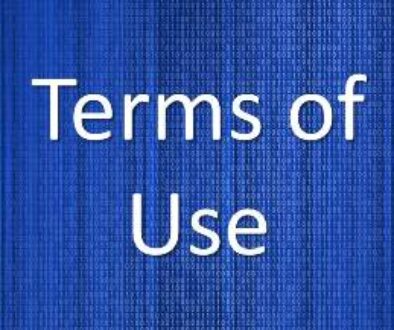Updating Your Website? Update Your Terms!
We are officially in the swing of 2020. Welcome to a new year—and a new decade! If you’re feeling ready for a change and updating your website, or even if you aren’t, now is a good time to take a look at your website’s Terms of Use, Terms of Sale, and Privacy Policy. If they are more than a couple of years old, you are probably behind on some important legal developments. If you “borrowed” them from another website or found them in an online template, they may be causing you more harm than good. If you have no terms at all, you may even be violating the law.
Why are terms so important?
Terms of Use
A website’s Terms of Use are there primarily to protect your business. They are a contract between your company and the users of the website. They give you one more tool for taking action against anyone who misuses your company’s website, from hacking to copyright infringement to sharing inappropriate content. If your website allows its users to share information, posts, and so on, the Terms of Use are also the best place for you to share your company’s DMCA take-down procedures, which help protect your company from liability if a website user infringes on a third party’s copyright rights. They are also where to share any guidelines you have for users about what they are or are not allowed to post on your company’s website. And if you haven’t updated your Terms of Use recently, you may not have kept up with shifting rules about how to ensure those terms are binding on your website’s users.
Terms of Sale
If you sell products on your website, the Terms of Sale are also there primarily to protect your business. They are a contract between your company and anyone who makes a purchase on your website. They govern who bears what risks: when is an order official? What happens if you don’t have the product in stock? When or why can your customer return products for a refund or a store credit? Having clear, unambiguous Terms of Sale can help protect both you and your customers.
Privacy Policy
Finally, what is arguably the most important document: the Privacy Policy. This document informs your website users what information you are collecting from them and how you are using it. There are laws in at least three states that require you to have a Privacy Policy and set out specific requirements for what the Privacy Policy must cover. Other states don’t have specific requirements for your policy, but do have specific requirements for the kinds of security and procedures you need to maintain—and it could be a problem if you don’t describe what you’re doing accurately in your Privacy Policy. It is absolutely critical that your Privacy Policy accurately describe your practices, and if those state laws apply to your company, that it comply with them. Your company may also have additional rules to follow and disclosures to make if it is in a regulated industry like finance or health care. The consequences of non-compliance can be pretty draconian, so it’s better to comply than to
So you need to make an update. What do you do?
First, consider how well your current terms are working for you. Maybe you’ve had a dispute with a customer about a product sale and want to make sure that you don’t have to go through that again. Maybe you host a web forum and have noticed some troubling behavior you would like to ban in the future. Maybe you are aware of some of those new state privacy laws, and know you aren’t in compliance, but just haven’t had a chance to get around to fixing things yet. Maybe you updated your website and you aren’t quite sure if your old Privacy Policy is still accurate.
Second, gather some information from your web developer. What kinds of personal information are you collecting? What kinds of non-personal information are you collecting? What kinds of technology are you using to track your users? Is there anything your developer has noticed website users doing that they shouldn’t be?
Third, contact our office to help you make updates. Your attorney will ask you questions about your website, about your business, and about your industry, and help you create terms for your website that will reflect your business’s unique needs.



